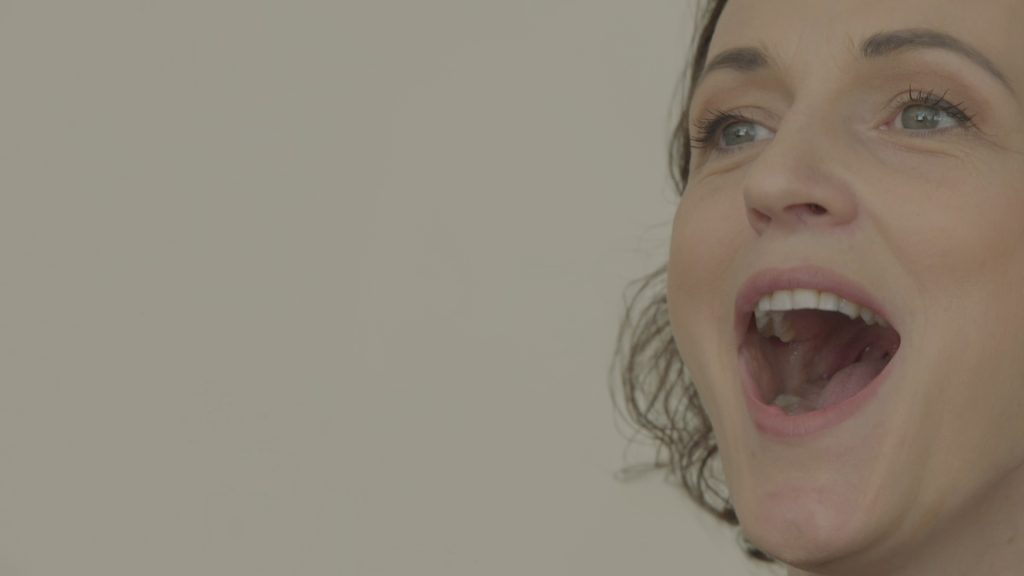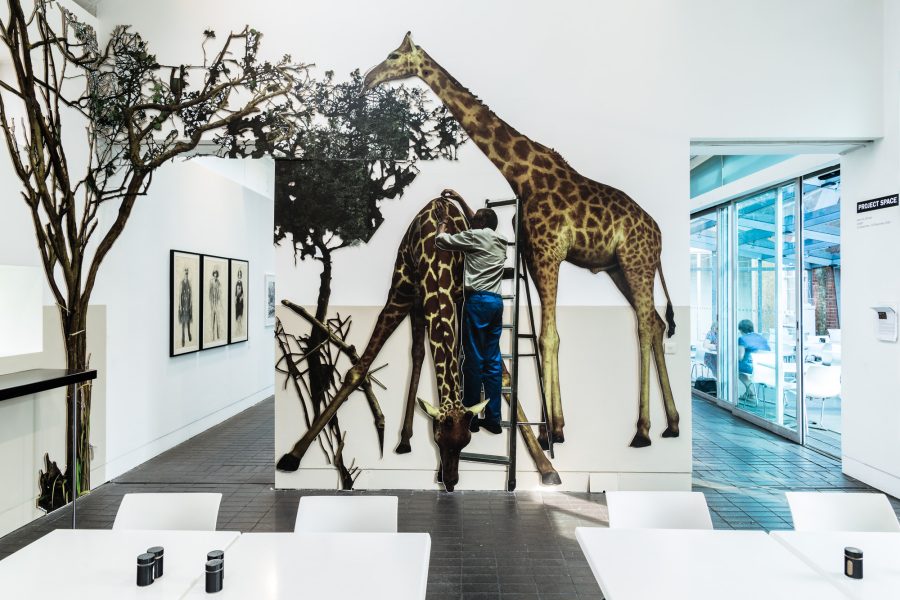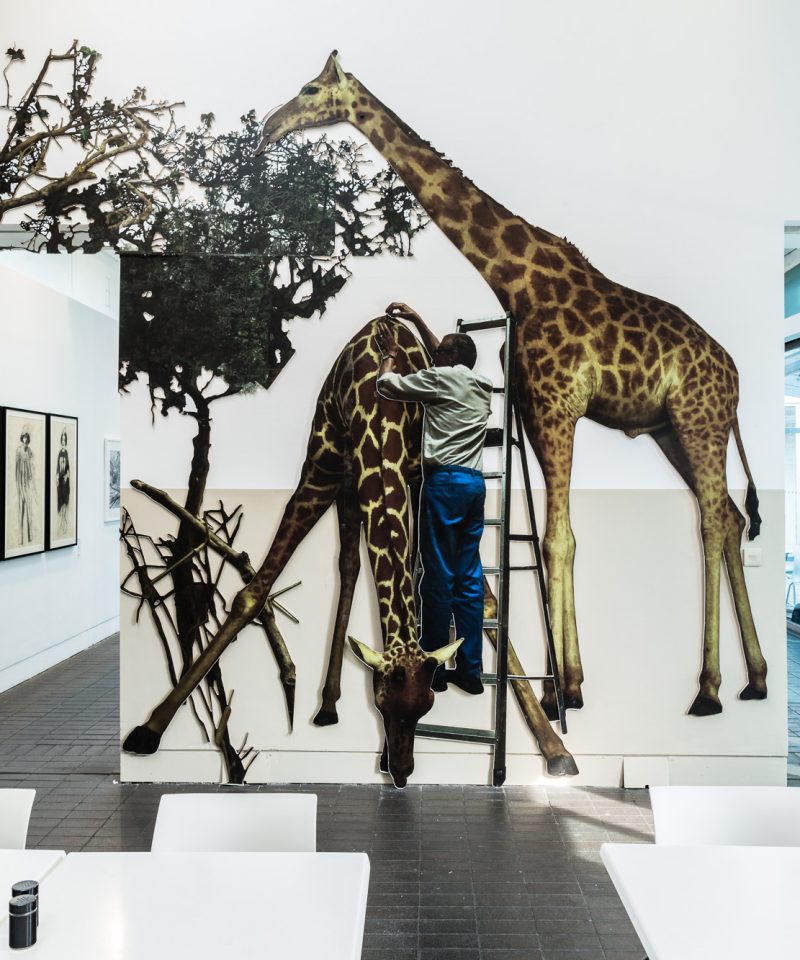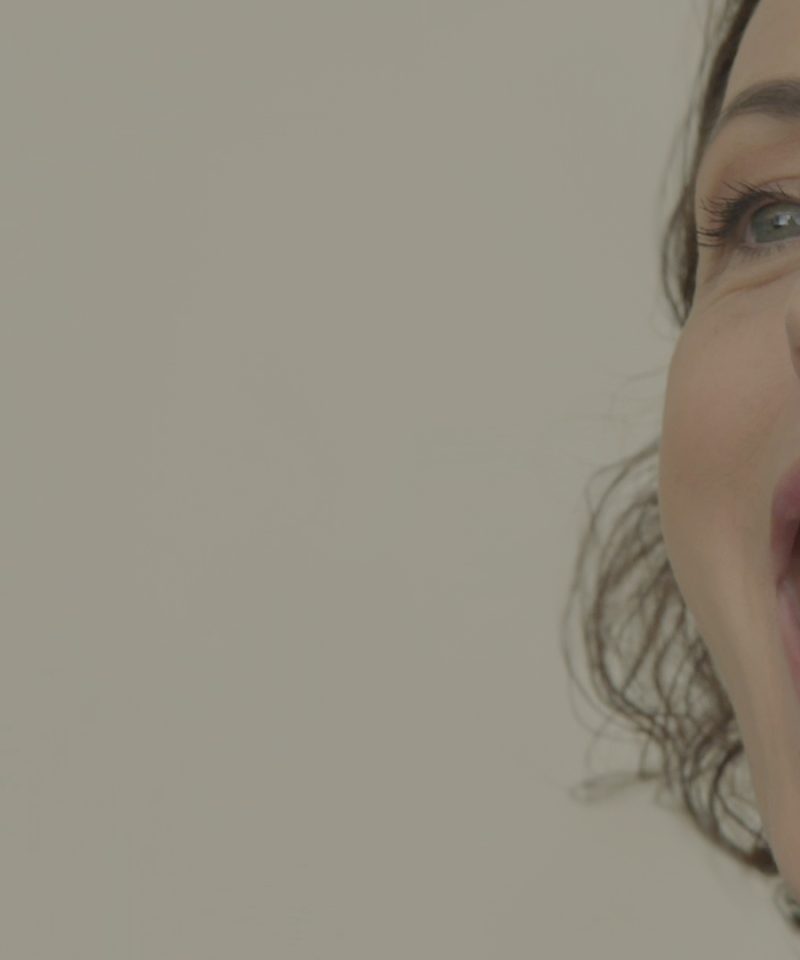Towards the end of Jasmine Johnson’s film A Perfect Instrument (Kristina), Kristina Savickytė sings a song for her singing teacher (Dalia Dubietytė), a romantic pop ballad whose lush instrumentation plays from the teacher’s portable stereo. We’ve heard Kristina warming up her voice by singing scales as Dalia played the piano – and seen her singing in close-up, smiling so widely that her tonsils are occasionally visible. Prior to her visit to Dalia, we’ve also seen (and heard) Kristina lead a mum-and-baby singalong; participate in singing a canon with the all-female Sutartine singing group; converse with her teacher (Malcolm Stewart) in English conversation lessons; and lead actors in the voice and movement workshop she calls ‘I’m A Perfect Instrument.’ This extended performance in Dalia’s classroom is the film’s climax; or rather, its wryly thoughtful, yet still moving, investigation of the archetypal cinematic climax of the romantic duet/dyad.
The final performance would be the place where Kristina belongs, in a conventional biopic. Johnson has shown, in a playfully geometric shot, Kristina ascending and descending the stairs of the music school much as she ascends and descends the musical scales in Dalia’s classroom, a sonic architectonics that conveys repetition and rehearsal, but also emplacement. But it’s a strangely displaced performance to an audience of empty chairs: haunted by the familiar tropes of karaoke, X-Factor auditions and Bridget Jones belting out ‘All By Myself,’ but set within the formal confines of the Vilniaus Balio Dvariono Dešimtmetė muzikos mokykla, a music school in Vilnius, Lithuania, the city where Kristina lives and works.
The solo performance is awkward until Dalia joins in from off-screen on the middle eight ‘Towards you, like always’, presaged by the film cutting from a long shot of their bodies turned away from each other to a close-up of Kristina singing, her voice and face suddenly in focus, in the frame: a perfect instrument because amplified and partnered. Earlier in the film, Kristina had told her acting students that, in the first phase of the exercise they’ve been doing, ‘Separately, we breathe by ourselves… we were too close to see each others’ eyes.’ The exercises they undertake become increasingly kinaesthetic for the viewer as they bring the actors into harmony: it’s hard to join in with the actors walking a gauntlet of ticklish consensual touch, but the group breathing and humming reverberates in my nasal cavities. Kristina is a good teacher, where the discipline is community, and A Perfect Instrument (Kristina) is an exercise in moving to a distance where we can look each other in the eye and breathe together.
Johnson’s work is marked by this intimacy of distance, seen here in her scrupulous attention to focal length (with cinematographer Mikas Žukauskas) and shot length, and the way that voices – particularly female voices – off-screen come to pair up with bodies on-screen without limiting the latter to the status of vessels, as Kaja Silverman observes in classical Hollywood cinema in her book The Acoustic Mirror. Instead, A Perfect Instrument (Kristina) creates an auditory depth of field in which the multiple qualities and purposes of Kristina’s voice resonate, shaped by the self-awareness of both the filmmaker and her subject about the voice’s process and purpose. Whereas the subjects of Johnson’s earlier film portraits L. Making Pesto, Third Party and Thieves and Swindlers are not Allowed in Paradise are held at a distance by the camera’s anthropological gaze, which sets up a frame of irony around their participation in gentrification and globalisation, here there is collaboration: working and breathing together.
Johnson has cited the influence of the Radical Anthropology Group on her rigorous vision, and her oeuvre engages with ritual and performance to examine critically where and how value and meaning are conferred. Through the residency at Rupert in Vilnius, Johnson investigated the multiple layers of Lithuanian culture, visible in the film’s interrogation of the Sapiegos Tech Park, a projected future community occupying the House of Sapieha’s Baroque palace, and audible in the Sutartines’ canon about the Sapieha princeling who catapulted bison in the grounds beside the palace. There is a sharp contrast between the untethered aerial camerawork (by Danielius Masiulis) that floats around and through the palace, and the fixed frames and gentle, breathed pans that capture Kristina: between a corporate vision of Vilnius’ techno-modernity and the equally contemporary portrait of a working mother, a bilingual European, a thinking body.
Kristina’s sounds and gestures, the film suggests, are not just affective vessels but unheralded alternative information technologies, encoding cultural histories and politics that resist the corporate appropriation of Sapiegos. The film asks us to rethink – by feeling – the devaluation of these feminised modes of communication: they may offer the alternative politics we currently need. In conversation class, Kristina defines community as a ‘way of being not only you.’ This is Johnson’s knowing (in both senses) manifesto for her film.
At an historical moment when individualism, isolationism and monoculturalism appears to be returning to the fore, Kristina Savickytė is the perfect instrument for More Utopia, to borrow the name of the artists’ collective of which Johnson is a part. This is not because she is charismatic (although she is), a word she defines in conversation class, but because she is part of a conversation. Moving to frame Kristina’s nervous, eloquent hands as she structures English sentences, the camera briefly frames the negative space created by her profile and her torso: a breath shape, the shape of conversation, of what moves between people. It is that elusive connection the film captures, and with which it captivates.
Writing about Yvonne Rainer’s Kristina Talking Pictures, a film whose title echoes here, B Ruby Rich says that it ‘insists on pushing past the circle of private lives and loves into the wider arena of public action, concentrating our gaze on the points of intersection between the two.’ A Perfect Instrument (Kristina) likewise finds – in the intimate space of the breath, exchanged as conversation, song, hum or touch – a ‘wider arena’ of cultural history, and potentially of public action. Of how our politics might be transformed by moving ‘Towards you, like always,’ with an open mouth, open mind, and open eyes.
Sophie Mayer is the author of Political Animals: The New Feminist Cinema (IB Tauris, 2015) and The Cinema of Sally Potter: A Politics of Love (Wallflower, 2009), and of several volumes of poetry, most recently (O) (Arc, 2015). She is a feminist film activist working with queer feminist curation collective Club des Femmes, with feminist advocacy project F-Rated, and with Raising Films, a community and campaign for parents and carers in the UK film industry. Her critical writing appears in Sight & Sound, The F-Word, Open Democracy and Literal, and she co-hosts the film podcast Hell is for Hyphenates. http://sophiemayer.net/



